2014 Awards Finalists
The KiwiNet Awards celebrate heroes in research commercialisation — those individuals and organisations whose best practice approach is changing the innovation landscape in New Zealand. We congratulate the 2014 finalists!
AJ Park Commercialisation Collaboration Award
This award recognises the outstanding new collaborations formed between multiple research organisations working together to build national scale around a technology platform or address a business need.
 Titanium Technologies New Zealand (TiTeNZ)
Titanium Technologies New Zealand (TiTeNZ)
Titanium powder metallurgy technologies creating a platform for high value manufacturing in NZ
 TBfree New Zealand
TBfree New Zealand
Eradicating bovine tuberculosis
TiTeNZ SLM machine image © Chris Parker Photography


Titanium powder metallurgy technologies creating a platform for high value manufacturing in NZ
TiTeNZ was established in Dec 2012 with the goal of developing a world class platform in titanium powder metallurgy that would in turn become a multi-company, multi-sector manufacturing base for advanced technology products and export focused technology enterprises. The TiTeNZ team involves a collaboration between the University of Waikato, Callaghan Innovation, GNS Science, Auckland University, the Titanium Industry Development Association (TIDA) and a number of industry partners.
This collaboration has resulted in the commercialisation of several exciting new technologies, which have been leveraged for optimal economic return to New Zealand. These include:
- Design through to export of a firearm suppressor patented and manufactured by TiDA in partnership with Oceania Defence Ltd, using 3D printing techniques.
- Export sales of a new titanium alloy crew safety knife manufactured in collaboration between TiDA, Page Macrae and Victory Knives, for use by the Team New Zealand Americas Cup syndicate.
- Successful demonstration of a proof of concept Ion Beam coating process for cleaning and pre-treatment of metal surfaces by GNS Science. The technology is now integrated within the daily operation of Page MacRae Engineering, enabling improved quality, appearance and performance of titanium alloy coatings.
Long-term cost savings to agriculture by minimizing the threat from bovine tuberculosis to the dairy, beef and deer industries
A collaboration between Landcare Research and TBfree New Zealand is delivering national benefits by addressing the bovine tuberculosis (bTB) problem in the dairy, beef, and deer industries. bTB is one of the largest commercial biothreats for primary industries, with a risk of bTB being transmitted to livestock from wild possum populations in about 40% of the country. Innovative strategies and technologies used in this collaboration have led to a large-scale disease eradication initiative previously thought impossible.
Landcare Research is now the major bTB research provider, conducting in excess of $3m of bTB and possum control related research annually. The partnership has been a major contributor to providing knowledge and practical advice that has assisted TBfree New Zealand to reduce the number of infected herds by more than 95% since 1994, to less than 100 infected herds. It has enabled TBfree New Zealand to commit to the hugely ambitious strategy of regional-scale bTB eradication from both livestock and wildlife over 2.5 million ha by 2026. In time, this will greatly reduce the $80m p.a. cost of keeping bTB at the very low levels needed to help maximise access to premium markets for our primary produce valued at ~$20 billion p.a.

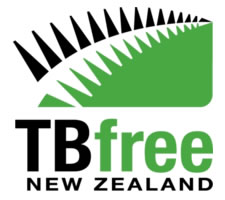
Researcher Entrepreneur Award
This award recognises an entrepreneurial researcher who has made outstanding contributions to business innovation or has created innovative businesses in New Zealand through technology licencing, start-up creation or by providing expertise to support business innovation.
 Ian Yule
Ian Yule
Massey University - Precision agriculture technology - pasture and crop sensing
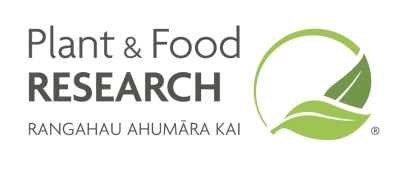
Alistair Jerrett: Changing the way New Zealand fishes
Alistair Jerrett has a vision of a New Zealand seafood industry that has a national and international reputation for ethically harvested and high quality fish. This vision has underpinned his research programmes over the last 15 years. He has focussed on understanding the properties of New Zealand commercial fish species and applying that knowledge to the development of technologies that can operate at commercial scale to maximise the potential of New Zealand seafood products.
Alistair works closely with the Seafood industry to find science and technology based solution for their businesses. His research has delivered a new harvest technology that is able to consistently and selectively land high quality fish - a monumental step forward for New Zealand’s fishing industry with potential to add value in all post-harvest areas, from improving the quality of current products to new and exciting market opportunities.

Precision agriculture technology - pasture and crop sensing
Professor Ian Yule is the Professor of Precision Agriculture (PA) at Massey University and leads a research programme focused on pasture and crop sensing for measuring growth rates and quality, as well as advanced methods for fertilizer application. As lead inventor of the Pasture Meter, Professor Yule’s research has contributed significant economic benefit to NZ, equating to around $46 million in productivity gains currently, with the potential for another $400 million if the entire dairy industry adopted this technology. The Pasture Meter is also being sold overseas as the rest of the world recognizes the benefit of rapid pasture measurement within a pastoral management system. The Pasture Meter is licensed to and marketed by C-Dax Ltd and is protected by patents in all its main markets.
One of Professor Yule’s strengths lies in his ability to transfer technology to the agriculture sector, presenting his research to industry groups, championing not only the economic benefits from precision agriculture application but also the benefits to the environment. It is this intersection of farming, economics and sustainability that drives Professor Yule’s work.
He is an active collaborator within the NZ research community, industry groups and long-standing commercial partners primarily through the commercialisation of the Pasture Meter. The Pasture Meter (with C-Dax) along with Aerial scanning technology (with Ravensdown) demonstrates Professor Yule’s ability to develop practical solutions to industry problems.

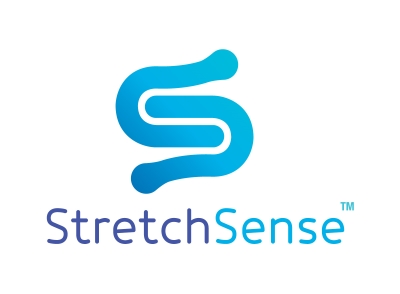

Artificial muscle technologies – wearable sensing and power
Globally, Dr Iain Anderson is considered a leading researcher in the application and control of artificial muscle technologies. In 2005 Dr Anderson, an Associate Professor with Auckland University’s Department of Engineering Science along with his graduate students founded the Biomimetics Laboratory. The laboratory is located within the Auckland Bioengineering Institute at the University of Auckland. The lab’s goal is to research the creation of new technology through biomimicry: the imitation of natural systems to solve problems and develop new technologies. The Biomimetics Lab has a strong focus on dielectric elastomer artificial muscles with particular expertise in optimising the technology for applications such as wearable sensors and power generators. The lab also develops and sells electronic systems for artificial muscle sensing, control and energy harvesting (www.biomimeticslab.com). In November 2012 Assoc. Prof. Anderson and two of his former students set out to commercialise soft stretch sensor technology. StretchSense Ltd makes stretchable capacitive sensors which are perfect for measuring human body motion.
Dr Anderson’s research and leadership has led to sales of equipment and research contracts totaling over NZ$1m with companies, universities and research organizations.
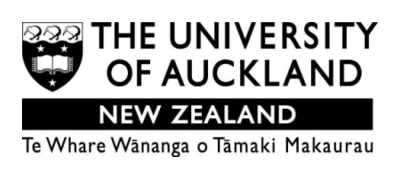

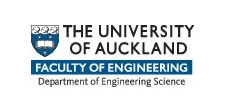
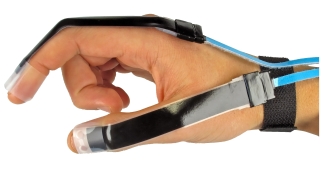
MinterEllisonRuddWatts Research & Business Partnership Award
This award recognises the deeply embedded working relationship between a research organisation and business that delivers significant commercial value for New Zealand.
 Wireless Network Partnership
Wireless Network Partnership
Commercialisation of fundamental wireless research leading to technologies for creating global export earnings
 Precision Seafood Harvesting
Precision Seafood Harvesting
Changing the way New Zealand fishes
 Massey University & Heilala Vanilla
Massey University & Heilala Vanilla
A partnership united by a passion for the world's most sensual and exotic flavour producing products used by the food industry around the globe
 Etec and Plant & Food Research
Etec and Plant & Food Research
Controlling Insects with Sex - Using pheromones for sustainable pest control

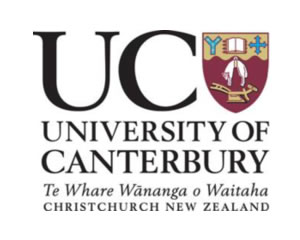

Wireless Network Partnership
Since 2007, Tait Communications and the Wireless Research Center (WRC) at the University of Canterbury have combined forces in the development of technology in LTE broadband, narrowband mobile radio, coverage extension, enhanced reliability and situational awareness. This partnership has allowed Tait to significantly expand its business and has raised the capability of both organisations. Through $2.2 million in cash and an equal amount in kind contributed from Tait, the WRC has boosted its research and student capability putting graduates in a prime position to take up formal employment at Tait, and delivering a combination of research and commercial expertise that has elevated Tait’s business. This partnership has all the hallmarks of a successful collaboration between research and business:
- WRC researchers are able to immerse themselves in the world of Tait and its clients, enabling shared knowledge around the fast moving digital communications space.
- Tait has been able to expand its business and address new and upcoming markets, as well as penetrate into overseas markets generating export value for New Zealand.
- Tait has been able to expand its business and address new and upcoming markets, as well as penetrate into overseas markets generating export value for New Zealand.
With a further $1.5 million guaranteed from Tait to the WRC over the next 2 years, this relationship is set to deliver ongoing value to both New Zealand’s public and private sectors.
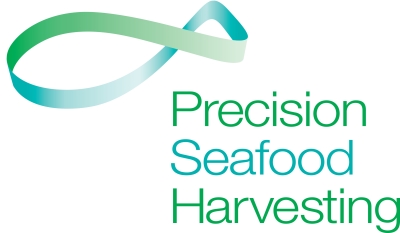

Changing the way New Zealand fishes
Plant & Food Research (PFR) is working in partnership with Sanford Limited, Sealord Limited and Aotearoa Fisheries Limited and the Ministry for Primary Industries to deliver a world leading commercialisation programme that will transform the way New Zealand, and eventually the world, fishes.
The system uses an understanding of the physical, physiological and behavioural aspects of fish to target specific species and fish sizes, as well as enabling fish to be landed in a better condition than with traditional harvesting systems, leading to premium pricing in export markets.
By landing the fish in a live, low fatigue state, unintended catch can be returned to the sea. The reduction in the number of non-target species taken maintains the health of all fish stocks. By meeting consumer demands for quality and sustainability, it is expected that New Zealand’s export returns will increase by $100 million by 2020 through use of the system.
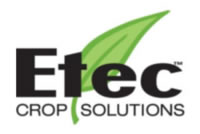

Using pheromones for sustainable pest control
A partnership between Plant & Food Research and Etec Crop Solutions has provided a path to market for game-changing technologies which essentially control insects using sex. Sex pheromones, the natural chemicals released by the females of many insect species to attract mates, are being used to both monitor pest populations and disrupt communication between insects.
The partnership between science, industry and manufacturer has enabled the development of fit-for-purpose solution for an industry problem. Currently around 30% of the New Zealand pipfruit industry is using a mating disruption system, resulting in a total saving on pesticide costs of around $670,000 a year and reducing the pesticide load in the environment, while providing access to Taiwan and other high value markets free of codling moth. Apple Futures is estimated to have preserved up to $113 million of the pipfruit industry’s revenue over the past four years.

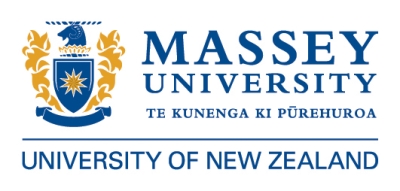
A partnership united by a passion for the world's most sensual and exotic flavour producing products used by the food industry around the globe
Kiwi company Heilala Vanilla has its roots in a Tongan plantation, its headquarters in Tauranga and a market for its fragrant products among the world’s most discerning chefs and retailers. A few years ago, Heilala turned to Massey University to help turn its beans into premium value added products that could be marketed to foodies around the world.
The collaboration between Massey and Heilala is a unique partnership between a market focused business (Heilala Vanilla), applied and fundamental research understanding (Associate Professor Marie Wong from the institute of Food, Nutrition and Human Heath at Massey University) and support of a tertiary education through student sponsorship. It is providing innovation and business growth for Heilala Vanilla which has led to export revenue growth of 159% over the last three financial years. The vanilla products are now sold in NZ, Australia, Japan, Denmark, Brazil, Singapore, Hong Kong and the USA.
With such a strong relationship, it’s not surprising that the benefits flow both ways. As an innovative, horticulture-related business, Heilala provides exactly the right kind of opportunities for New Zealand food technology students and Massey University delivers market focused research leading to strong export revenue growth and ongoing commercialisation opportunities.
Commercial Deal Award
The commercial deal award celebrates excellence in research commercialisation delivering outstanding innovation performance and the potential for generating significant economic impact for New Zealand.
 Kifunensine Serendipity
Kifunensine Serendipity
Callaghan Innovation - A rare sugar spells sweet success
 Springfree™ Trampoline
Springfree™ Trampoline
University of Canterbury - From Kiwi Shed to US Product of the Year
 C-Dax Pasture Meter
C-Dax Pasture Meter
Massey University - A more efficient measurement system enabling farmers to make better-informed pasture grazing decisions


Kifunensine Serendipity
Kifunensine is a crucial ingredient in the manufacture of an enzyme replacement therapeutic for the treatment of a rare genetic disorder. A viable manufacturing process was developed by GlycoSyn, a world class technology leader in the area of Carbohydrate Chemistry and a business unit of Callaghan Innovation.
GlycoSyn specialises in high quality drug development and prototype scale-up manufacture of complex drug candidates for its clients. A synthetic pathway to Kifunensine was developed in-house and the process patented by GlycoSyn, positioning themselves as one of the world’s few providers of this valuable compound and one of the few commercial providers of pharmaceutical grade material. GlycoSyn successfully connected with a US-based Biotech multinational for the export sale of clinical grade Kifunensine. Total revenues generated with this partner have exceeded NZ$16M over the last 7 years, with demand steadily increasing, year-on-year, until commercial launch of the business partner’s product in 2010.
To put the worth of this material in perspective, on a per gram basis Kifunensine is 20 times more valuable than gold. GlycoSyn’s development and commercialisation of Kifunensine is an exemplar for a commercial deal from publicly funded research, generating significant economic returns to New Zealand.



From Kiwi Shed to US Product of the Year
Dr Keith Alexander from Canterbury University wanted to buy his kids a safe trampoline, but he found there wasn’t such a thing. As an inventor he decided to redesign how a recreational trampoline works.
The result was the Springfree™ Trampoline, a true innovation in trampoline technology that has spun out from its public research origins into a successful commercial venture.
The successful commercialisation of this technology has resulted in significant economic benefits to New Zealand, creating jobs and building capability for New Zealand. The Springfree™ Trampoline company has a strong international presence, particularly in North America and China. 40,000 units are currently sold annually internationally (including 1800 in NZ), with production expected to increase 50% in 2014.
Springfree™ Trampolines is achieving great traction internationally, featuring as one of Ellen DeGeneres’ ‘12 Days of Christmas’ audience giveaways in 2010.


A more efficient measurement system enabling farmers to make better-informed pasture grazing decisions
Pasture Meter developers within Massey University’s New Zealand Centre for Precision Agriculture saw a gap in the market for a more efficient means of pasture measurement. In partnership with C-Dax this vision became a reality, and now the Pasture Meter is sold in New Zealand and all around the world, benefitting the average NZ dairy farm by $57,000 per annum.
The three co-developers from Massey University - Ian Yule, Rob Murray and Hayden Lawrence - knew their concept had potential, but realised the necessity of an ongoing collaboration between research and a leading commercial partner, saying they could not have predicted the willingness of dairy farmers to adopt the new technology.
In response to market need, the Pasture Meter has since been developed to incorporate GPS and C-Dax SmartMaps information technology, enabling record keeping, comparison and forecasting. The Pasture Meter is now being sold internationally, strengthening C-Dax’s position as innovation leaders and providing export earnings back to the NZ economy.



